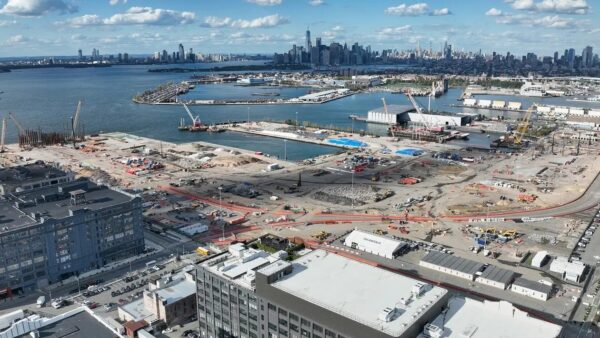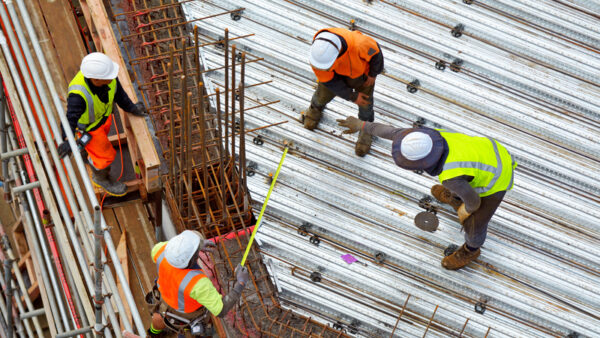Angered by revelations that London’s Crossrail would go over time and budget, contrary to years of delivery body Crossrail Ltd’s insisting that it would not, politicians questioned project officials in enquiries intended for public consumption and produced reports in April this year.
One is from the House of Commons’ Public Accounts Committee (PAC) and the other is from the Transport Committee of the London Assembly.
Both are suffused with a sense of betrayal.
“#Crossfail”, was how the Transport Committee trailed its report, while its chair Caroline Pidgeon branded the scheme as “yet another example of a large catalogue of failed infrastructure projects”.Â
Over in the House of Commons, PAC chair Meg Hillier MP declared: “It is unacceptable that Parliament and the public still do not know the root causes of the failures that beset this project. Nor will we accept the Department and Crossrail Limited’s description of these serious problems as ‘systems failures’.”
The PAC wanted names, and consequences.
Knowing what you know now, how would you do it differently next time?
Taken together, the reports paint a disturbing picture of Crossrail Ltd’s inappropriate autonomy, its “unchecked optimism”, its executives’ supposedly disproportionate pay, and a project culture that encouraged a “denial of responsibility”.
We’re asked to imagine a self-serving project leadership gone rogue and refusing to acknowledge the injury they were inflicting on the taxpayer.
I believe this is a distorted picture.
Is it a failed project?
The politicians were angry because in August 2018 Crossrail Ltd revealed that the central section would not be finished in December 2018 as planned, and that the budget of £14.8bn could not be met.
In December the government said it would have to make a further £2.15bn available to get Crossrail finished, which, added to other extra cash injections, pushed the total funding envelope out to £17.6bn. In April this year Crossrail Ltd gave a new target completion period: a six-month window ending in March 2021.
What the hashtags overlook, however, is that Crossrail is the largest and most complex project the UK has seen in a generation. The central section involved building 26 miles of tunnels under the subterranean complexity of London, with 10 new stations, eight of which are underground, each having to be integrated with existing stations and lines.
All this had to happen in confined spaces in the built-up and congested capital.
Crossrail eclipses recent large projects, such as the London Olympics and Paralympics (£5.3bn) – which provided the procurement model for Crossrail – and Heathrow Terminal 5 (£4.3bn).
And while Crossrail is not yet finished, its projected cost and time overruns are modest next to schemes of comparable scale and complexity.
A look at the cost hike
The hike from £14.8bn to the projected £17.6bn is a rise of just under 19%. Recall that its nearest UK equivalent, the privately-financed Channel Tunnel, overshot its estimated cost by 80% when it completed in 1994.
In terms of both planning and execution, Crossrail is close to perfection compared to Boston’s “Big Dig” (1991-2007), which took twice as long to build than planned, and whose cost trebled from the $5bn estimate set in 1985 to the actual outturn of $14.8bn in 2007 (all in 2007 dollar values).Â
Keep in mind, too, that the costing of £14.8bn was set in October 2010 after the new Coalition government applied pressure to cut spending.
Prior to that, in January that year, after months of analysis Crossrail Ltd had arrived at a price tag of £17.8bn, which the National Audit Office in 2014 considered to be “a more mature” understanding of costs and risks.
But in deference to new management at the Treasury, Crossrail Ltd knocked £3bn off that estimate, in part by demanding lower contract prices from recession-hit contractors, which “saved” £500m.
In this light, the new funding envelope could be seen as a return to the original, and more realistic, cost profile.
The politicians’ reports make no mention of the January 2010 cost estimate of £17.8bn.
Systemic, not personal
The two politicians’ reports seek to pin blame on senior project officials, and are indignant about the pay packages awarded to them, particularly Crossrail Ltd’s former chief executive, Andrew Wolstenholme, who received £1.7m in the two years before he resigned in March last year.
This indignation would be justified if these individuals caused Crossrail’s troubles.
But a third report, by the National Audit Office (NAO), suggests the root cause of the delay and cost overrun lies in how the project was set up, contractually.
Before Wolstenholme and other key figures such as programme director Simon Wright joined Crossrail Ltd, the decision had been made to treat each component as a separate project governed by contracts from the NEC3 suite.
By the time all work had been procured, the programme was split into 36 main contracts for stations, tracks and other elements, most of them depending on others to finish on schedule.
Clashes proliferated, leading to delays, design changes and compensation events among contractors. Costs soared.
Also, according to the NAO, the splintered set-up meant Crossrail Ltd never managed to achieve a realistic, ground-up, programme-wide schedule of works, and delays accumulated as a result.
From 2015, when the friction latent in the procurement approach bloomed, Crossrail Ltd’s leadership spent vast amounts of energy trying to manage the dysfunction in the system and limit the damage, by renegotiating contracts, rewriting schedules and addressing compensation claims.
It is not clear what more they as individuals could have done. Instead of being blamed, they should perhaps be commended for keeping damage to current levels.
Positive spinning
What the politicians’ reports do get right is that the collective programme leadership did misrepresent the true state of progress on Crossrail, making it appear better than it was, and this deserves sanction.
Transparency and accountability in scoping and delivering major projects are necessary for a properly functioning economy and society.
But in mitigation, it could be argued that once the programme was fully activated and the difficulties began manifesting in 2015, the leadership team had few choices but to keep pressing ahead while putting a positive spin on it.
With so much political prestige invested in Crossrail, bad news would almost certainly have been politicised, with reactions spiralling beyond a measured assessment of what needed to be done. Heavy and possibly counterproductive interference might have ensued.
There is strong evidence that this was the majority view among the entire project leadership – not just Crossrail Ltd, but also the Joint Sponsor Board, comprising the Department for Transportation and Transport for London.
They will have known that the programme’s problems originated in how it was set up, and to halt work and restructure the entire procurement model would have led to even greater costs and delays.
In short, they were damned if they did, and damned if they didn’t.
A better question
Crossrail tested the very limits of UK programme management theory and practice.
Politicians rightly act as defenders of the taxpayer, but in building a narrative of individual culpability and project “failure”, they do a disservice to the many people who toiled to deliver the largest and most complex transport scheme the UK has seen in a generation.
They also miss the true lessons Crossrail has to teach us.
In their search for someone or something to blame, politicians just helped foster an immature megaproject culture.
This is unfortunate with other megaprojects looming, such as HS2, the expansion of Heathrow and the Palace of Westminster refurbishment.
It would have been more in taxpayers’ interests if they had focussed their enquiries on one very simple question, namely: “Knowing what you know now, how would you do it differently next time?”
- A more detailed and fully referenced version of this essay examining Crossrail’s problems is available free to GCR readers for three months here.
Image: The new Farringdon Station on the Elizabeth Line (Crossrail)
Comments
Comments are closed.







I’ve never managed a project in my life, but I did write the original version of the project management system; Artemis in the late 1970s. I probably have a unique insight into the management of large projects.
I also feel that Crossrail has a resource problem.
1. Before any digging started, Crossrail realised there would be a shortage of underground workers, so they set up TUCA at Ilford to train more.
2. Train manufacturers are building large numbers of trains for the UK, Europe and the rest of the world. A large number are running late partly because no-one thought to build a new test track. At least the Welsh are planning to building one, but it is too late!
What would have happened if Crossrail had been able to test trains and signalling together on a dedicated Crossrail-only test track a couple of years ago?
3. I live in North London and you hear stories from good tradesmen about good job offers to get Crossrail finished.
Did Crossrail do enough to make sure that there were enough skilled workers?
4. Walk the Crossrail route and you see lots of swanky developments going up. In part groups like Sovereign Wealth Funds and Insurance Companies, know that development on or near a Crossrail station will be a winner. As these developments are backed by funds with bottomless pockets, are they paying more to get the workers they need and in part depriving Crossrail of its workforce?
Inevitably, if you can’t get the resources you need for a project, costs go up and the project gets later.
I support the politicians perspective on this. This project had in place BIM design procedures which by all accounts should have mitigated design progress issues and design coordination issues as the project developed. A huge amount of taxpayers money was spent on this and yet it did not deliver as promised. I know the system can work on large projects but in this case, it didn’t.
Judging a project such as Crossrail on construction costs alone is far too simplistic.
Too many time projects are judged on their construction costs alone, rather than on the value of the benefits they bring. Any judgement should include the benefits that the Taxpayer’s £18bn has purchased; and that will not be possible for many years to come.
Certainly, politicians are not best placed to advise on “value for money”.
Since names are being named, who decided on the original procurement strategy? And who was driving the estimate review that took £3B out and authorised a project with negligible contingency?
I’m not sure that the decision to keep the true situation from the politicians once it became evident was a good move either. The problem is that without honest and reliable internal measures, you can’t manage the project well, and you dont know where to intervene. It seemed to me that there was poor internal project control data too. I cant see how you could have internal measures telling the truth about progress, whilst the governance group are being fed different information.